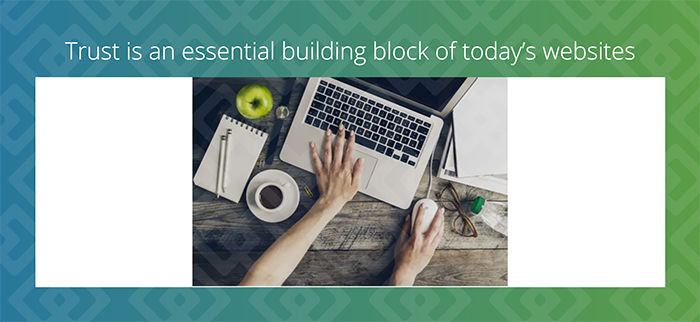When business use of websites began, getting noticed was the name of the game. Remember pop-up ads? Text scrolling up the screen? How about those mesmerizing rotating banners? Yes, there were — and remain — a variety of comical and some would say annoying ways to get visitors’ attention.
Nowadays, most Internet users are savvy enough not to be impressed by flashy graphics. They tend to want simplicity and the ability to navigate intuitively. Most of all, they want to feel protected from scams and hackers. That’s why, when maintaining or updating your company’s website, trust is an essential building block.
Make it personal
Among the simplest ways to establish trust with customers and prospects is conveying to them that you’re a bona fide business staffed by actual human beings.
Include an “About Us” page with the names, photos and short bios of the owner, executives and key staff members. This will help make the site friendlier and more relatable. You don’t want to look anonymous — it makes customers suspicious and less likely to buy.
Beyond that, be sure to clearly provide general contact info. This includes a phone number and email address, hours of operation (including time zone), and your mailing address. If you’re a small business, use a street address if possible. Some companies won’t deliver to a P.O. box — and some customers won’t buy if you use one.
Keep contact links easy to find. No one wants to search all over a site looking for a way to get in touch with someone at the business. Include at least one contact link on every page.
Mind the details
Everyone makes mistakes, but typos and inaccuracies on a website can send many users to the “close tab” button. Remember, one of the hallmarks of many Internet trolls and scamsters is ineffective or even nonsensical use of the English language.
Check and doublecheck the spelling and grammar used on your site. Bear in mind that spellcheck programs look only for misspelled words. If you have correctly spelled a word but it’s misused — for example, “to” instead of “two” — spellcheck won’t catch it.
Also, regularly check all links. Nothing sends a customer off to a competitor more quickly than the frustration of encountering nonfunctioning links. Such problems may also lead visitors to think they’ve been hacked. Link-checker software can automatically find broken links within your site and links to other sites.
Construct good content
Obviously, there are many more technical ways to secure your website. It goes without saying that cybersecurity measures such as encryption software and firewalls must be maintained to the fullest. But, from a content perspective, your site should be constructed first and foremost on a foundation of trust. Our firm can provide other ideas and further information.


